Addiction Treatment
Starting treatment for smoking, stimulants, cannabis, or other substance use disorders:
If you are interested in learning more about medication-assisted treatment options for any substance use disorder, call us at 1-888-388-7226 to book an appointment. Appointments are available the same day, and we also welcome new patients on a walk-in basis. Our clinic hours and locations are found here.
Our services are covered 100% by OHIP. Please bring your Health Card and a list of your current medications to your first appointment.
Your First Appointment:
Your first appointment will last up to one hour and will include completing some forms regarding your medical history, providing a urine sample, and having an assessment with a physician. A comprehensive care plan will be developed, which includes a discussion about pharmacological treatment options as well as counseling options. Patients who are seeking treatment for a nicotine addiction do not require drug urine testing.
Smoking Cessation
Tobacco kills up to half of those people who use it. Cigarette smoke contains over 7000 chemicals, including over 65 which are known to cause cancer (including of the lung, head and neck, stomach, colon, cervix, and bladder). Additional risks associated with smoking include cardiovascular and lung disease, stroke, pneumonia, asthma, and reduced fertility.
In recent years, many individuals have started inhaling electronic cigarettes (e-cigarettes, or ‘vaping’ products) containing nicotine and often find themselves addicted and unable to stop. Emerging reports have also associated vaping with lung injury and potential death
It can be very difficult to quit smoking and vaping, particularly considering that nicotine withdrawal symptoms can include sleep difficulties, low mood, difficulty concentrating, irritability, restlessness, anger, increased appetite and weight gain.
At Halton & Mississauga RAAM Clinic, we offer medication treatment options for smoking and vaping cessation and also help connect our patients with counseling services. Numerous research studies have shown that pharmacological treatment works best when combined with counseling.
Stimulant Use Disorder
Stimulants include substances such as cocaine, methamphetamine (“crystal meth”), and amphetamine (“speed”). Stimulants are highly addictive, and their use can become compulsive and out of control. This can lead to any number of problems affecting family, finances, relationships, or functioning at work or school.
Various health risks exist with the stimulants, including psychosis, mood disorders, cardiovascular problems, high blood pressure, and seizures. Cocaine is often contaminated with levamisole, which itself can produce dangerous side effects such as agranulocytosis, vasculitis, and/or tissue necrosis. Other common contaminants are the highly-potent opioids fentanyl and carfentanil which can cause unintentional overdose and death.
Halton & Mississauga RAAM Clinic offers medical assessment and brief counseling to patients experiencing a stimulant use disorder. A comprehensive care plan will be developed, which includes a discussion about medication and counseling options.
Cannabis Use Disorder
Contrary to popular belief, cannabis can be an addictive substance. Approximately 1 in 11 (9%) of adults who use cannabis will become addicted to it, and this number rises to about 1 in 6 (17%) for those who started using cannabis as a teenager. For those who smoke cannabis daily, the risk of addiction can be as high as 25% to 50%.
Regular cannabis use is often accompanied by withdrawal symptoms which make it hard for people to stop using since they often believe that cannabis is required to “treat” these withdrawal symptoms. Well-documented cannabis withdrawal symptoms include anxiety, insomnia, irritability, decreased appetite, restlessness, and depressed mood. For certain individuals, cannabis use can impact their ability to perform well at school or on the job.
Frequent cannabis use can have negative long-term consequences, which is particularly risky in youth. Some of these possible long-term consequences include psychosis, impaired attention and memory, decrease in IQ, and altered brain development.
Halton & Mississauga RAAM Clinic offers medical assessment and brief counseling to patients with cannabis use disorder. A comprehensive care plan will be developed, which includes a discussion about medication and counselling options.
Benzodiazepine Tapering Guidance
Benzodiazepines are widely-prescribed medications which are used for various conditions and symptoms including insomnia and anxiety. Examples include diazepam (Valium), lorazepam (Ativan), alprazolam (Xanax), clonazepam. Other sleep medications such as zopiclone (Imovane) and zolpidem (Ambien/Sublinox) are very closely related to benzodiazepines. People often obtain medications believed to be benzodiazepines off the street, however the authenticity, dose, and purity of these street preparations is very much unknown.
Although not recommended for long-term use, these medications are frequently prescribed for years, if not decades. Tolerance will typically develop requiring increased doses to obtain the same effect. People who become physically dependent on these medications find it incredibly difficult to stop them due to extensive withdrawal symptoms and the risk of seizures if not continuously taken.
There are many negative consequences associated with benzodiazepine use, including addiction, memory and concentration problems, sedation, increased risk of falls and accidents, worsening psychiatric symptoms, and increased risk of death including by overdose.
Acute benzodiazepine withdrawal can be potentially dangerous, and we advise that individuals in acute withdrawal visit an emergency department for immediate medical attention. Halton & Mississauga RAAM Clinic can assess patients who are concerned about their benzodiazepine use, and we are able to provide advice and guidance to patients and their caregivers regarding strategies to eventually come off these medications. Please note that we do not directly prescribe benzodiazepines for this reason through our Clinic.


Head Office: 1540 Cornwall Rd, Unit 102
Oakville, Ontario, L6J 7W5
